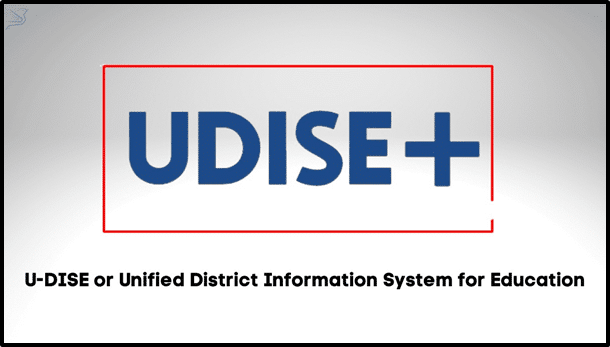USING CHILDREN’S PERSONAL DATA LEGALLY AND SECURELY
Syllabus:
GS-1: Social Issue
Focus:
The need for robust data privacy and management in India’s extensive education system. With the introduction of UDISE+ and APAAR platforms, concerns arise regarding data security, parental consent, and regulatory compliance under new laws like the DPDP Act.
source:slideshare
Overview of Indian Education System:
- Expansive Ecosystem: India has about 15 lakh schools, 97 lakh teachers, and 26.5 crore students from pre-primary to higher secondary levels.
- Diverse Stakeholders: The system includes a wide range of socioeconomic backgrounds.
- Objective: Manage and improve the education system through effective data management.
- Role of UDISE+: Collects and exchanges real-time data on school infrastructure, teachers, student enrolment, and academic performance.
- Enhancing Quality: Helps in policy creation, resource allocation, and monitoring educational programs.
Understanding Automated Permanent Academic Account Registry ID(APAAR ID):
About Unified District Information System for Education Plus (UDISE+):
What is Unified District Information System for Education Plus (UDISE)?
Related Initiatives:
|
Data Collection and Management:
- UDISE+ Platform: Established in 2018 to collect information on school infrastructure and performance.
- APAAR Introduction: Launched under the National Education Policy 2020 to provide unique student identifiers and collate academic credentials.
- Data Collection: Includes demographic information and Aadhaar details with voluntary consent.
- System Integration: Efforts to link APAAR and UDISE+ to streamline student admissions and reduce dropout rates.
- Collaboration: Entities like DigiLocker and ed-tech companies collaborate with state governments.
Data Privacy and Compliance Issues:
- Data Privacy Principles: Importance of adhering to data privacy and minimisation due to the sensitive nature of children’s data.
- Existing Policy: The 2020 data-sharing policy needs updates to align with the Digital Personal Data Protection (DPDP) Act, 2023.
- Consent Challenges: Questions about the validity of parental consent under UDISE+/APAAR.
- Legitimate Purposes: The DPDP Act requires data collection for specified legitimate purposes only.
- National Scale Benefits: Acknowledged benefits of data sharing for tracking student migration and managing records.
Legal Framework and Three-Part Test:
- Supreme Court Ruling: Right to privacy recognized in Justice K.S. Puttaswamy (Retd.) v Union of India (2018).
- Three-Part Test: Assessments for state action on privacy include legitimate state interest, necessity, and proportionality.
- Compliance: Aadhaar integration in APAAR/UDISE+ must meet these conditions.
- Data Protection: Ensuring measures against data theft and cyber breaches.
- Privacy and Minimisation: Essential due to the sensitive nature of children’s personal data.
Need for Protocols and Governance:
- Data Exchange Concerns: Unspecified purposes and third-party integration raise issues.
- Data Fiduciaries: Identifying roles of data fiduciaries, processors, and principals is complex and currently not addressed.
- Absence of Protocols: Specific protocols for sharing children’s data for unmentioned purposes are lacking.
- Liability and Redressal: No clear mechanism for legal liability or grievance redressal regarding data accuracy and disclosure.
- Future Steps: Development of standard operating procedures and governance frameworks to ensure lawful and secure data management.
Challenges:
- Data Privacy Compliance: Adhering to data privacy laws with sensitive children’s data is complex.
- Consent Validity: Ensuring valid parental consent for data collection is problematic.
- Policy Updates: Existing policies lag behind new regulations like the DPDP Act.
- Integration Issues: Linking systems like APAAR and UDISE+ may raise data sharing concerns.
- Third-Party Roles: Undefined roles of third parties in data handling complicate accountability.
- Legal Liability: Lack of clarity on legal liability for data breaches and inaccuracies.
- Grievance Redressal: Absence of effective mechanisms for handling data-related grievances.
Way Forward:
- Update Policies: Revise data-sharing policies to comply with the latest regulations and standards.
- Clarify Consent: Define and standardise processes for obtaining and verifying parental consent.
- Strengthen Integration: Ensure secure and transparent integration of systems like APAAR and UDISE+.
- Define Roles: Clearly outline responsibilities of third parties involved in data handling.
- Establish Liability: Create clear guidelines for legal liability and accountability in data management.
- Implement Protocols: Develop specific protocols for data sharing and protection.
- Improve Redressal: Set up robust grievance redressal mechanisms to address data-related issues effectively.
Conclusion:
Effective data management in India’s education system requires updating policies to align with new privacy laws, clarifying consent mechanisms, and establishing clear protocols for data handling. Addressing these issues will enhance data security and ensure compliance with legal and ethical standards.
Source: The Hindu
Mains Practice Question:
Discuss the challenges and necessary steps for ensuring the legal and secure management of children’s personal data in India’s education system. How can policymakers address issues related to data privacy, consent, and integration of educational data platforms?




